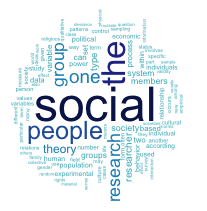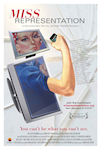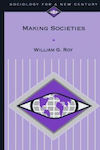Introduction to Sociology
Dan Steward: djs@illinois.edu
Description: http://courses.atlas.illinois.edu/spring2018/SOC/SOC100ONL/ (You Are Here.)
Syllabus: http://courses.atlas.illinois.edu/spring2018/SOC/SOC100ONL/syllabus.html (available 16 January 2018)
Moodle: https://learn.illinois.edu/course/view.php?id=26413 (available 16 January 2018)
"No one has ever taken the idea of society as artifact to the hilt." (Unger)
"Men make their own history, but they do not make it as they please..." (Marx)
 This course is a survey of the field of sociology. The field overlaps significantly with all of the other social sciences/studies (e.g., anthropology, economics, geography, political science) as well as many of the humanities (e.g., history, philosophy) and some of the natural sciences (e.g., biology). The denizens of our field, in other words, are wont to trespass anywhere and everywhere. But we send word home, and we try to fit the pieces together as best we can. Signs (numbers and narratives and everything in-between) of the great unknown-getting-known are always circulating in the sociological discourse.
This course is a survey of the field of sociology. The field overlaps significantly with all of the other social sciences/studies (e.g., anthropology, economics, geography, political science) as well as many of the humanities (e.g., history, philosophy) and some of the natural sciences (e.g., biology). The denizens of our field, in other words, are wont to trespass anywhere and everywhere. But we send word home, and we try to fit the pieces together as best we can. Signs (numbers and narratives and everything in-between) of the great unknown-getting-known are always circulating in the sociological discourse.
But the facts we come to know are not brute facts: They are social facts. They are facts with a history, facts that vary across societies with different histories. We may, as individuals, lead lives that are "solitary, poor, nasty, brutish, and short" (Hobbes), but we needn't fetishize any state-of-nature. As we exercise our "sociological imaginations" (Mills), we learn to see historical/structural forces at work behind our apparently private troubles. We learn to see these troubles as public issues, as social problems that invite collective action. We may be stuck with (and by) gravity, and we may be the products of a natural selection "red in tooth and claw" (Tennyson), but we are not stuck reproducing our legacies of race, gender, and social class. The "historical construction of our world" (the subtitle of our textbook, Making Societies) is ongoing, contested, and contestable. We must be sober about our histories, and appreciate that race, class, and gender (among other variables) remain compelling realities for us, but throughout this course we will also listen to those who challenge our institutions and our common sense. Along the way, we'll hopefully find memes and institutions we want to keep, or maybe just tweak, as well as problems we need to face together.
This is an online (Moodle) course during the Winter Term. Course activities include quizzes (everyone's favorite task!), other individual work (free-writing reflection pieces, as well as a reflective essay at the end of the course), a series of discussion forums in small groups, and a class-wide project of wiki-making in which we examine institutions and social problems as they are represented (or reproduced) in popular culture (e.g., films).



 The textbook is: Roy, William G. 2001. Making Societies: The Historical Construction of Our World. Thousand Oaks, CA: Pine Forge Press. (ISBN 0761986626)
The textbook is: Roy, William G. 2001. Making Societies: The Historical Construction of Our World. Thousand Oaks, CA: Pine Forge Press. (ISBN 0761986626)
We will also study several videos, which are available online through the library:
- Race: The Power of an Illusion;
- Miss Representation; and
- People Like Us: Social Class in America.
Other texts will also be required, but will be made available online. A draft of the Syllabus (http://courses.atlas.illinois.edu/spring2018/SOC/SOC100ONL/syllabus.html) will be available after the Winter Term.
Revised: 2018.01.13
 This course is a survey of the field of sociology. The field overlaps significantly with all of the other social sciences/studies (e.g., anthropology, economics, geography, political science) as well as many of the humanities (e.g., history, philosophy) and some of the natural sciences (e.g., biology). The denizens of our field, in other words, are wont to trespass anywhere and everywhere. But we send word home, and we try to fit the pieces together as best we can. Signs (numbers and narratives and everything in-between) of the great unknown-getting-known are always circulating in the sociological discourse.
This course is a survey of the field of sociology. The field overlaps significantly with all of the other social sciences/studies (e.g., anthropology, economics, geography, political science) as well as many of the humanities (e.g., history, philosophy) and some of the natural sciences (e.g., biology). The denizens of our field, in other words, are wont to trespass anywhere and everywhere. But we send word home, and we try to fit the pieces together as best we can. Signs (numbers and narratives and everything in-between) of the great unknown-getting-known are always circulating in the sociological discourse. 


 The textbook is: Roy, William G. 2001.
The textbook is: Roy, William G. 2001.